In 1929, two Armenian immigrants set up a modest dairy facility in Andover, Massachusetts. Their production was centered on a food item often consumed in the old world: a sourish, white substance derived from milk. Popular amongst fellow recent immigrants and refugees from the Ottoman Empire fleeing ethnic persecution, who yearned for the food of their ancestral homeland, this product was delivered daily in a wagon emblazoned with the Armenian word madzoon. These Armenian immigrants were Sarkis and Rose Colombosian, and their product was what we now refer to in the United States as yogurt.
It’s hard to believe, given the bountiful selection of yogurts in the dairy aisle of a modern American supermarket, but until the 1940s, this food staple was completely unfamiliar to the average American. Colombo Yogurt, as Rose and Sarkis’s company came to be called, was one of the first to popularize what is today nearly a $9 billion industry in America. But as the Armenian word for yogurt—madzoon—fell to the wayside, the mass yogurt industry (with the help of major corporations like Yoplait and Dannon) continued to recede further and further from the homegrown features that once defined it. Today’s mainstream yogurts bear little resemblance to those consumed by peoples of the far east who brought the dish here to begin with.
***

For the last 48 years, Erivan Dairy, a small, family-owned and operated producer of yogurt in Pennsylvania, has been the single manufacturer of traditional Armenian madzoon in the United States. I had unwittingly stumbled upon their yogurt in a supermarket in Brooklyn in 2016. Like surely many other Armenians, I was lured to their brand by its not-so-subtle reference to the capital of my ancestral homeland; but I was secured as a lifelong customer for its taste, which exactly resembles the madzoon I consumed daily living in Armenia several years ago, and for which I had never found an American substitute. My curiosity led me eventually to visit their modest facilities in a small town about 15 miles north of Philadelphia on a searingly hot day last April.
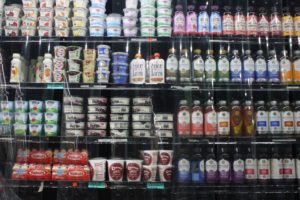
I was greeted by owner Paul Fereshetian and a smattering of staff (which, truth be told, felt more like an intimate family reunion than a gathering of employees) that consisted of Paul’s wife, Yvonne; their daughter, Cerise; and daughter-in-law, Joyce—each patriotically clad in a burgundy tee shirt (Erivan’s signature color) donning a bubble-letter logo, hand-drawn by Paul’s mother in the seventies, in the right-hand corner.
Amidst the cheerful banter and warm smiles, it was hard to imagine these people were responsible for one of the most subversive yogurts in the American food industry. For reference, where the American version of this Caucasian dish is thick, madzoon is watery. Where yogurt is creamy, madzoon is tart. Where yogurt is consistent, madzoon is clumpy. For decades, American consumers have been conditioned to identify these qualities as ‘wrong.’ One could say that in an industrial food system, in which value-added trumps actual human values, this is a yogurt that marches to the beat of its own drum.
Amidst the cheerful banter and warm smiles, it was hard to imagine these people were responsible for one of the most subversive yogurts in the American food industry.
Paul sees it a bit differently. “Our yogurt is really healthy for you,” he told me as we stood together in Erivan’s production area, the magical place where milk becomes a healthier version of itself. Modern man’s pursuit of health is, in fact, Erivan Dairy’s very raison d’etre. Their business started in the kitchen of Seran Fereshetian, Paul’s mother. Yogurt-making had always been in their family—not for profit, but for subsistence, but that changed when the health food movement hit America (and, apparently, the Fereshetian household) in the sixties and seventies. Paul recalled that, as a child in the seventies, his mother’s obsession with all-natural foods had some social repercussions. “It was very embarrassing… I used to hide my lunch and reach into my brown bag and pull out food just big enough that I could hide it in my hand and eat it. This isn’t just farm fresh stuff. We’re talking things like, whole grains. Your sandwich bread dissolves in your hands because there’s nothing in there to hold it together. All my friends are having wonder bread and I’m eating this bread that’s just falling apart.”
A lot of local stores began sprouting to meet the demand for healthy alternatives to mass produced foods. Seran would routinely send Paul’s father, Harry Fereshetian, on trips to the local health food store to pick up ingredients. “He was talking to the owner of one store, Walter Wade of North Penn Health Food in Lansdale, who is really the person we owe the most to,” Paul explained to reporter Jim Quinn of the Philadelphia Inquirer back in 1985. “There was some acidophilus yogurt in the refrigerator, and my father said, ‘You know, my wife makes that kind of yogurt at home.’ We’re Armenians, and Armenians love yogurt. Walter Wade said, ‘If she can make it, l’ll buy it from you—the only company making it around here is going out of business.’”
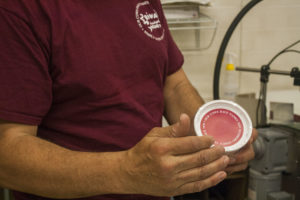
And so it went. Paul’s mother hand wrote the labels to their containers herself and Harry delivered them by hand to the store. “My mother had this little set up in her kitchen,” he recalled, “And I knew that there was work to do. I thought it was interesting. I was just trying to figure out life at ten years-old. But little by little, over the next few years, I started realizing that this was really cool, and that this was probably what I was going to be doing with my life.” In 1977, Paul attended Temple University, majoring in business, with the specific idea that he would take over Erivan Dairy’s operations. “My mother was an entrepreneur, she was not a business woman. So I learned how to make it a business.”
When yogurt was first discovered by early people millennia ago, it was surely a happy mistake. (What is more intuitive, after all, than conserving a resource that spoils by developing a fondness for its spoiled version?) Yogurt is at its heart a relatively simple science, which boils down to a careful process of heating and cooling. But this process has been refined from its early days, in ways which are central to Erivan Yogurt’s story. Before his family fled the Genocide, Seran’s father and Paul’s grandfather, Garabed Hachikian, a chemist hailing from Istanbul, taught at the famous Sorbonne University in Paris. “He didn’t just pass down a recipe,” Paul explained. “He taught [my mother] some really significant advantages, techniques, to help start culture from scratch. Not just to grab somebody else’s madzoon and make some new yogurt or go to a culture lab. He taught her some things that helped her to get this business started back in 1970.”
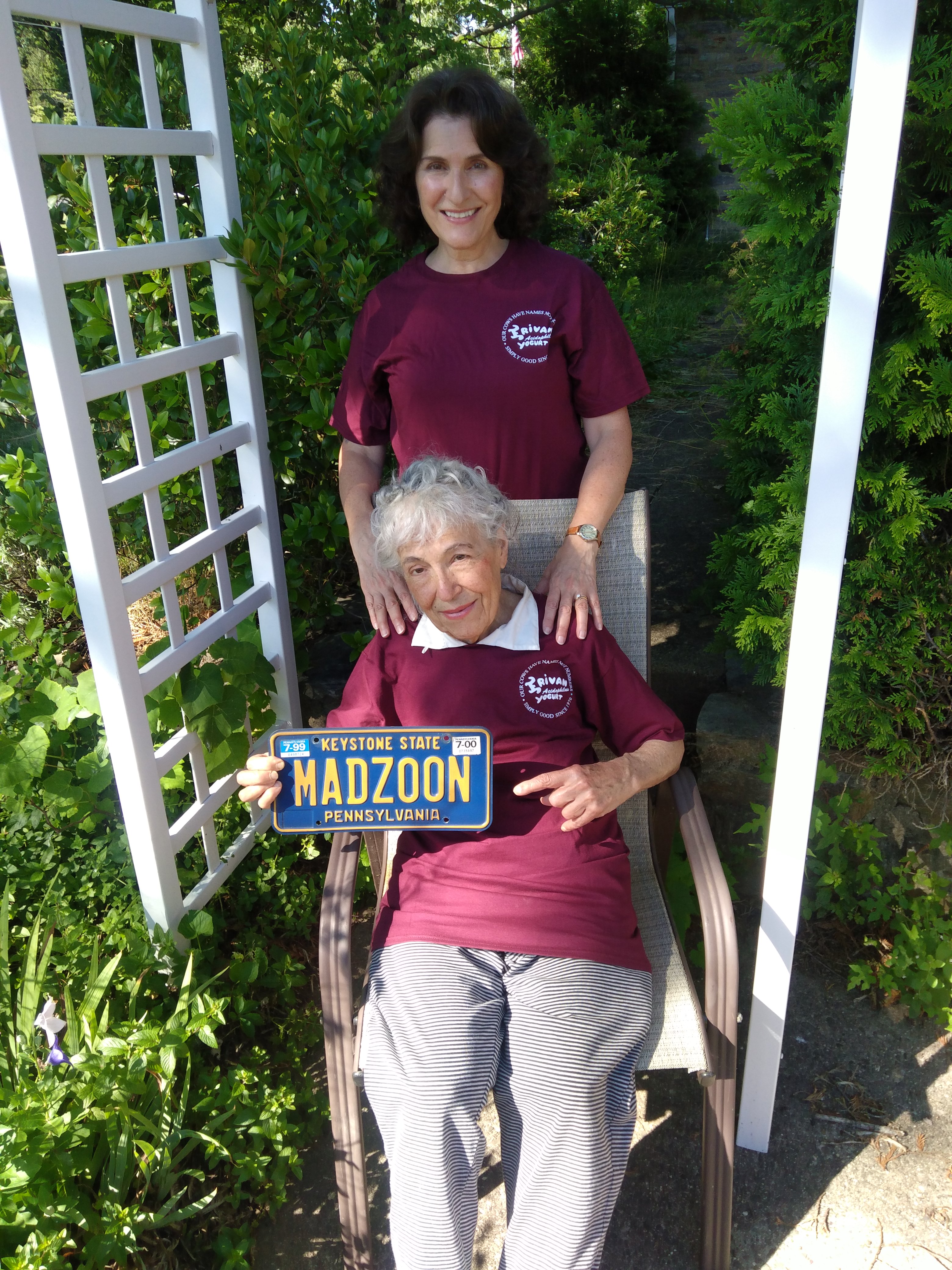
Equipped with a deeper understanding of the chemistry, Seran decided early on to make yogurt using cultures that would eventually take hold in the American health industry. This is why “The Erivan Story,” the script on their yogurt’s white and magenta plastic container, tells not of their company’s genesis, but rather, of the natural processes which give their madzoon its healthy appeal. It is made using a beneficial bacteria called acidophilus, which appears naturally in healthy human bodies. It’s a probiotic that works with your natural chemistry, whose health effects range from improving cholesterol to aiding digestion. “And that’s what made us different,” Paul explains, “because nobody else is doing that. That article”—referencing Jim Quinn’s feature—“was 25 years ago. And still nobody is doing that.”
***
In 1977, lacking the capital to compete in the mass market, Colombo Yogurt was sold to the French conglomerate Bon Grain. In 1993, it was sold again to the major American food corporation General Mills, best known for marketing brand name cereals like Cheerios and Lucky Charms. In 2010, after 81 years on the market, General Mills announced it was halting production of Colombo Yogurt altogether. But by that time, Rose and Sarkis Colombosian’s legendary madzoon had already been translated, many times over, into the language of America’s industrial food system. Erivan, on the other hand, has managed to do what few have in the modern era: stay pretty much exactly the same. They are still 100-percent family-owned and revered by a fiercely loyal customer base, who is responsible for bringing their product from the shelves of the niche health food stores that Seran Fereshetian so adored, and into Whole Foods, Erivan’s largest distributor by far. All this, Paul explained, has resulted nearly entirely from word-of-mouth requests. Yet as with any small business, the future is still uncertain.
Any yogurt-maker worth their salt will tell you yogurt’s most defining ingredient—its foundation, if you will—is in its starter, or as it is called in Armenian, magart. Like sourdough bread, each new batch requires a carefully balanced blend of bacteria, which converts the lactose in milk to lactic acid in a process pre-determining many important elements, like tang, texture and consistency. But unlike sourdough starter, which can be recreated from scratch using flour and water, yogurt is more elusive. As a result, many starters are proprietary—including Erivan’s, a prized family secret. Impossible to make from scratch, yogurt’s magart functions by passing down meaningful elements from one scrappy generation of yogurts to the next.
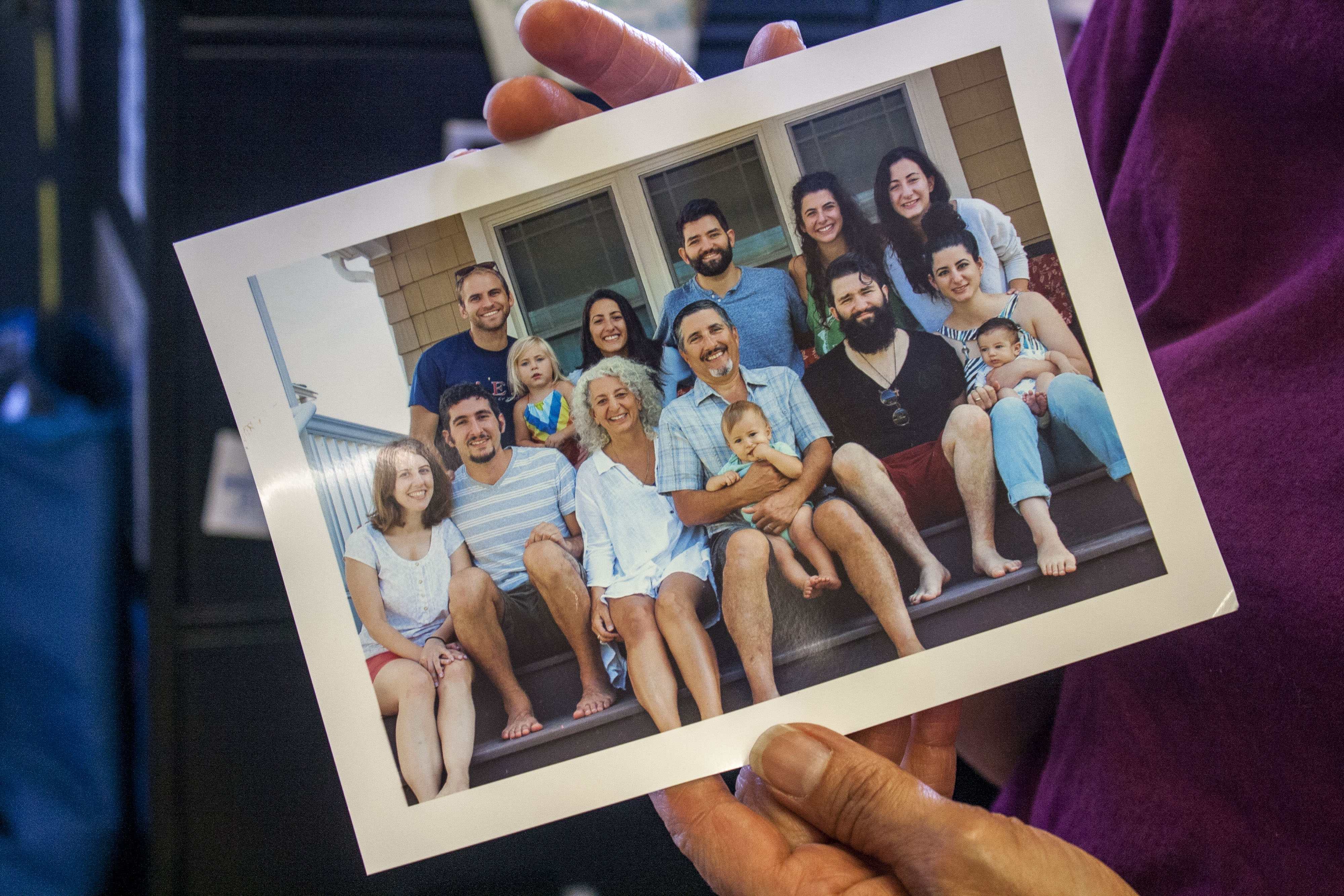
Like their yogurt itself, Paul and Yvonne, second-generation Armenians who are both descendants of a long line of madzoon-makers, both hope the business will stay in the gene pool. People of faith, they have been blessed with five children. Of these, their second-oldest, Cerise, shows great promise. As her father answered questions about the science and history of her family’s particular strain of madzoon, Cerise listened excitedly, at one point jumping in to explain how the science of Erivan inspired her lifelong interest in chemistry. (A wayward school science experiment revealed that—luckily for Erivan’s customers—garlic-flavored yogurt would not become a reality.) Though her professional journey saw her exploring other fields, later in life, she was drawn once more to the tantalizing simplicity of her family’s madzoon. “Just the idea of starting from milk and creating a product that somebody would really like is really interesting to me,” she explained.
Up until now, Erivan has been in the business of serving a no-nonsense family recipe, “simply good since 1970.” As for what the future holds, Paul said, “Well, it’s been just yogurt,” pausing only to add, “but my daughter’s got great ideas.”


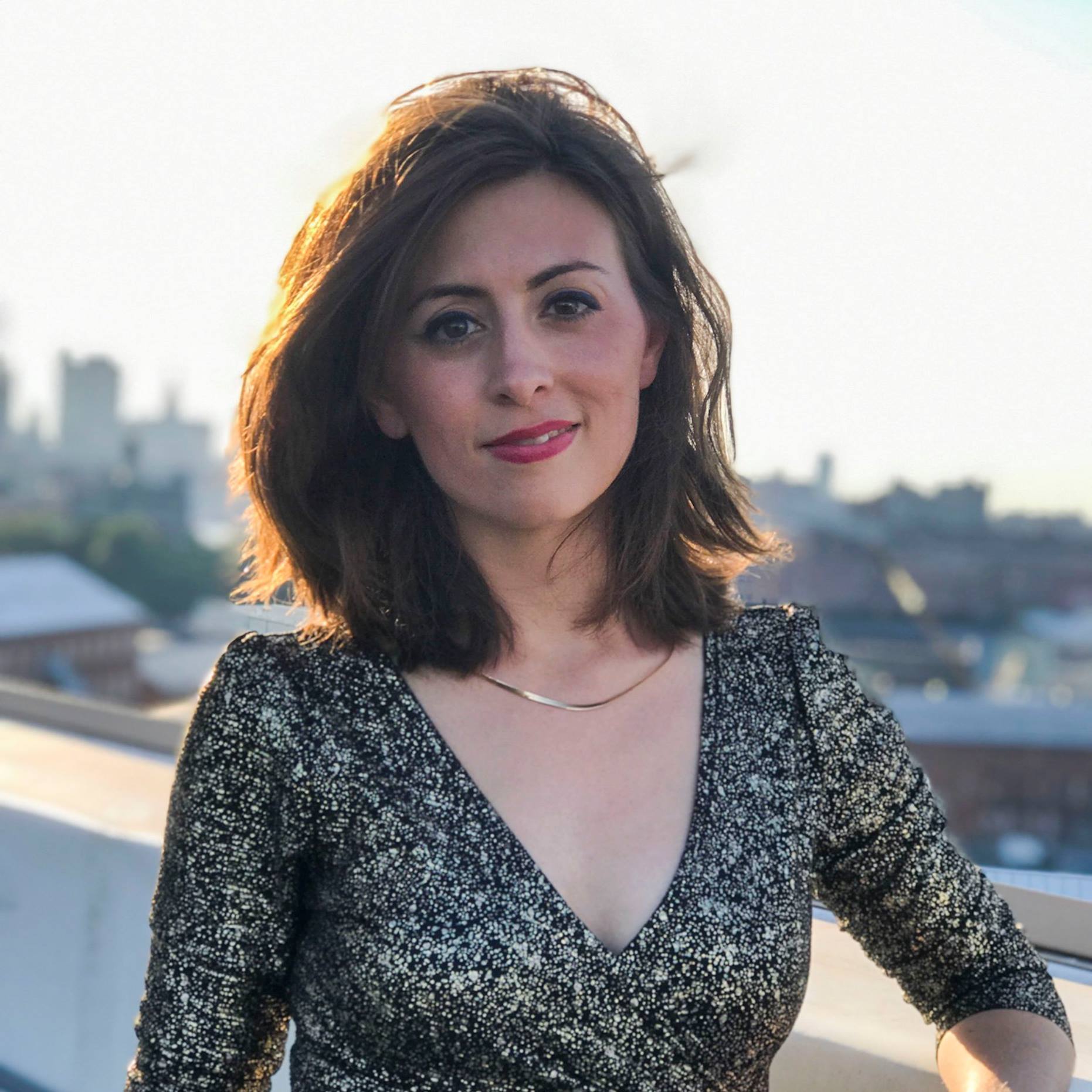
What a wonderful family story. The description of the madzoon brought back wonderful memories of my grandmother’s madzoon. My wife and I have not made madzoon in over 40 years and reading that the brand is available at Whole Foods will motivate me to obtain the magart and brew some again.
What a wonderful story!
Just a pedantic remark.Why the Turkish spelling of the capital of Armenia?
Please change the name…..
If you are proud being Armenian so you need to spell your country’s capital correctly.
My Husband will not put in his mouth any other yogurt accept Erivan. I am so happy to find it in Whole food Annapolis Only I wish you can make Labneh from it
It is spread yogurt it is so yummy to spread it on toast or crackers ,just a thought !!!!
What a Wonderful Story. My Mother use to make Yogurt from scratch, when I was Child.
Going straight to my local Whole Foods this morning to buy some Erivan yogurt. Can’t eat that stuff that passes as yogurt from those commercial companies. It doesn’t taste like my grandma’s yogurt she used to make when I was a child. Thanks for this story.
Great article about the Armenian family making “matzoon” for all Americans to enjoy!!!!!
The article brought back many memories of my grandmother’s cooking and having a matzoon on the table to put on salads, meats or just eating with bread!!!!!!
Thank you family for this article of historical significance…..
12/8/18
Ditto from another comment. I remember there was always yogurt in the house. My mother made it from scratch all the time. Where can I buy your yogurt! I live in Bridgeport, CT. Thanks!
Hi from Bridgeport Seaside Park! We love Erivan and buy it at Whole Foods in Fairfield and Milford!
We make yoghurt too, but great grandma did much more. She made cheese. I also once made greek yogurt and sour cream
I buy Karoun yogurt made in California. I believe it’s an Armenian brand available in various regions of the US.
A great story. Commercial US yoghurt sounds very dull. I live in NZ which is a big dairy producer. Most of the commercial yoghurts here proudly display which bacteria strains they include in their brand. S. Thermophilus, S. Lactis and Lacidophilus are mainstream. We even have drinking Keffir style yoghurt with 13 different cultures from the Lactobacillus, Bifdobacterium, Lactococcus, Leuconostoc and Streptococcus strains. Very plain unflavoured and unsweetened yoghurts of Greek style are popular here. We can also get Labneh and Lebanese styles but harder to find. Many people here consider yoghurts a health food. There are some styles that are sweetened and not so great but it would be unusual to find a single yoghurt anywhere that was using a bacterial culture of some kind.
Love this product and it the only dairy product that I can eat with side effects
Whole Foods in MA and NJ sells Erivan Yogurt. Let’s encourage more groceries – large and small — to order this fantastic product and the only TART madzun in the bunch.
I could not find Erivan Yogurt even in La armenian stores.
When I was a young girl, my Armenian mother instructed me to eat madzoon when I got a kanker sore (apthous ulcer) which worked every time like a charm to heal my mouth within about a day. Now as a physician with an interest in the micro biome I regularly instruct patients to apply nonpasturized honey (3x/dy) and eat plain yogurt with active cultures (the vast majority have no idea what madzoon is). I have patients coming back all the time telling me how well it works. As an adult, I put a dollop of “Greek” yogurt on my food almost daily. I’m switching this up for Erivan madzoon as soon as I can get to Whole Foods. Fingers crossed that the Novato, CA Whole Foods carries it. Love the story!
Too bad Whole Foods, now Amazon, no longer is carrying Erivan. It has acres of other yogurts on the shelf instead. I have complained but they told me to order it directly.
I LOVE your yogurt !! I cannot eat any other ! Once when I went home to visit my father, we went shopping and I followed him over to get yogurt. He went straight to Erivan ! I said “I didn’t know you ate this yogurt too” He said “It’s the only one worth eating” Like father, like daughter ! He lived to a healthy 98 years by the way, walking, talking, eating home made fresh food & Erivan right to the last day ! This sounds like an ad but only because this is all true & heartfelt. Dad & I appreciate your work,integrity,and product. Blessings to you all !
I love this yogurt and have been eating it every day for the last 20 years. I bought it first at Mr. Wade’s North Penn Health Food Store.
I now buy it at Whole Foods, but am one of only a few, and hope they will continue to carry it.
I was wondering it it’s possible to buy it direct, since I buy so much.
Best yogurt I ever tasted not even close!!!!
What I’m confused about is why it isn’t organic?
I’m lucky to find Erivan here in central NC. It’s really quite delicious and unlike anything else. I have to make a special trip for it, but it’s worth it.
I am Greek American and enjoy eating good and healthy food.I am very fortunate to be living jn Manhasset where we have Whole Foods which is only a few blocks away from my home. I recall as a child my mom would go on Eighth Ave and 43 St in the city and would bring home a jar of real Greek yogurt very similar as Erivan. I was so overjoyed that finely found the really authentic yogurt. I have converted in buying Erivan.
Erivan is the authentic yogurt I remember eating as a child I recall my mom would take
me to Eighth Ave and 43rd St in NTC from the Bronx where many Greek stores and buy
Greek yogurt similar to Erivan. So fortunate to finally find that very same yogurt.
Have told many people about Erivan to buy it.
Iam a French pastry i know what a good
Yogurt taste like,
You Sir and your family make the best
Yogurt in USA ,seriously!
For many years to come I will be eating
Your wonderful yogurt Thank you